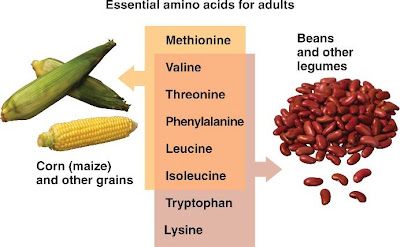The thyroid gland is one of the most important glands in the human body. It controls the way you metabolize food, the way you use energy, lose and gain weight, how well or poorly you sleep, and much, much more.
It is well known, but worth mentioning that your thyroid simply can’t function without iodine, and if you are iodine-deficient, higher iodine intake could make all the difference for your thyroid.
Selenium is another indispensable element to healthy thyroid function. An array of selenium-based proteins and enzymes help to regulate thyroid hormone synthesis and metabolism and to maintain just the right amount of thyroid hormones in the blood and tissues, including the liver, kidneys, and thyroid gland, as well as the brain. Selenium-containing enzymes also function as a protective “detox”, preserving the integrity of the thyroid gland when we’re under all kinds of stress.
Zinc, iron, and copper play vital roles in healthy thyroid function as well. Check their levels for a healthy thyroid gland's function.
In hyperthyroidism, oxidative stress can be particularly high. This happens because the thyroid is more active, and it is using more oxygen, which leads to an accumulation of oxygenated compounds that can harm your cells.
This is why antioxidants are recommended, especially in hyperthyroidism. The B vitamins (B2, B3, and B6) are also important for thyroid function because they are involved in manufacturing T4.
Foods that support your thyroid gland's health:
| Iodine | Primary sources: sea vegetables, and seafood, as well as iodized sea salt. Secondary sources: eggs, asparagus, mushrooms, spinach, sesame seeds, beans, garlic |
| Selenium | Brazil nuts, tuna, organ meats, mushrooms, beef, sunflower seeds |
| Zinc | Fresh oysters, sardines, beef, lamb, turkey, soybeans, whole grains, sunflower seeds, Brazil nuts, almonds, walnuts, ginger root, maple syrup |
| Copper | Beef, oysters, lobster, dark chocolate, tomato paste, nuts, beans (soybeans, white beans, chickpeas), sunflower seeds |
| Iron | Clams, oysters, organ meats, soybeans, pumpkin seeds, white beans, blackstrap molasses, lentils, spinach |
| Vitamin A (beta-carotene form) | Sweet potatoes, carrots, pumpkin, spinach, broccoli, asparagus, liver, lettuce |
| Vitamin C | Peppers, kiwifruit, citrus, strawberries, broccoli, cauliflower, Brussels sprouts, papaya, parsley, greens |
| Vitamin E | Whole grains, almonds, soybeans and other beans, sunflower seeds, peanuts, liver, leafy green vegetables, asparagus |
| Vitamin B2 (riboflavin) | Almonds, mushrooms, egg yolks |
| Vitamin B3 (niacin) | Rice bran, wheat bran, peanuts (with skin), liver, poultry white meat |
| Vitamin B6 (pyroxidine) | Sunflower seeds, wheat germ, fish, liver, beans, walnuts, brown rice, bananas |
Stay well!





Dietary_minerals.PNG)


